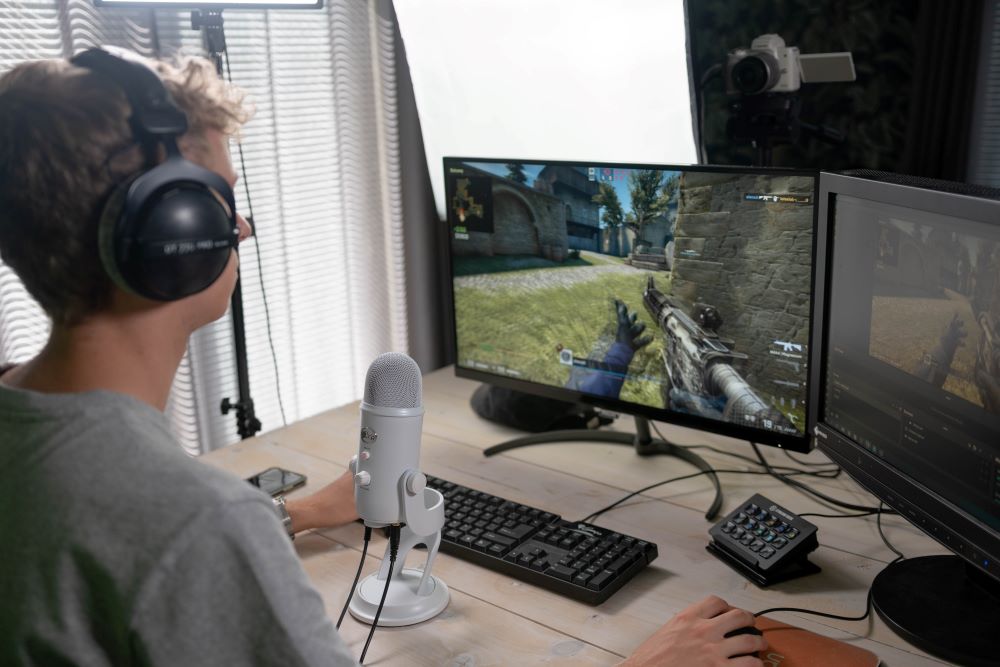In an age of rapid technological advancement, investments that seamlessly incorporate cutting-edge technologies are the ones that can make a lasting impact. Negative Five Studio
A Netherlands-based studio has tried to make a good appearance by choosing great entrepreneurs in the convergence of artificial intelligence (AI) and the gaming industry.
With a portfolio of startups that are leveraging AI’s transformative potential within the gaming landscape, Negative Five Ventures is not only shaping the future of entertainment but also redefining how we interact with technology.
In this article, we will delve into the world of Negative Five, exploring their significant contributions to the fields of artificial intelligence and games.
The Rise of AI in the Game Industry:
Artificial intelligence has become an integral part of modern gaming, enhancing player experiences, enabling dynamic narratives, and pushing the boundaries of realism. By leveraging AI algorithms, game developers can create lifelike characters, intelligent opponents, and immersive environments that adapt to player behavior. This fusion of AI and games has resulted in the emergence of cutting-edge technologies like procedural content generation, natural language processing, and machine learning.
The Gaming Industry’s Meteoric Rise
The gaming industry has evolved from a niche pastime into a cultural and economic powerhouse. The figures in the game industry speak for themselves – it generated a staggering $159.3 billion in revenue in 2020 alone! Also Revenue in the Video Games market is projected to reach US$384.90bn in 2023.
This massive market has caught the attention of entrepreneurs looking to leverage AI technology to create immersive gaming experiences. Negative Five recognizes this opportunity and aims to revolutionize the gaming landscape by integrating cutting-edge AI technologies into their game development process.
This figure alone underscores the sector’s exponential growth and its influence on the broader entertainment landscape. From casual mobile games to immersive virtual reality experiences, the gaming industry spans a diverse array of platforms and genres.
Wide Audience Reach and Engagement
One of the most compelling aspects of the game industry is its unparalleled ability to engage a diverse and global audience. Statistics show that there are approximately 2.9 billion gamers worldwide. This staggering number, representing nearly 40% of the global population, illustrates the industry’s potential to connect with a broad demographic, transcending age, gender, and geographic boundaries. Investors recognize the value of such widespread engagement, as it provides ample opportunities to monetize through various channels, including in-game purchases, advertising, and subscription models.
Technological Advancements and Innovation The game industry has always been at the forefront of technological innovation, and this continues to attract investors seeking cutting-edge opportunities. Virtual reality (VR), augmented reality (AR), and cloud gaming are transforming the way games are played and experienced.
Artificial Intelligence’s Role in Gaming Revolution
As the gaming industry evolves, so does the role of AI within it. AI has transitioned from being a behind-the-scenes tool to a game-changing force that directly impacts user experiences. One of the standout applications of AI in gaming is procedural content generation, where algorithms create vast game worlds and intricate levels, optimizing both time and resources. AI-driven characters with advanced behavioral patterns and dynamic responses to player actions create immersive storytelling experiences.
Negative Five Ventures is at the forefront of this revolution, harnessing AI to amplify gaming experiences. Through its startup sub-group, the studio is catalyzing advancements that span AI-generated narratives, character interactions, and procedurally generated landscapes. These innovations not only challenge the traditional boundaries of game design but also point toward an era of hyper-personalized gaming experiences.
AI algorithms can generate vast and diverse game worlds, levels, and environments. This reduces the need for manual content creation and allows developers to create more expansive and dynamic gaming experiences.






